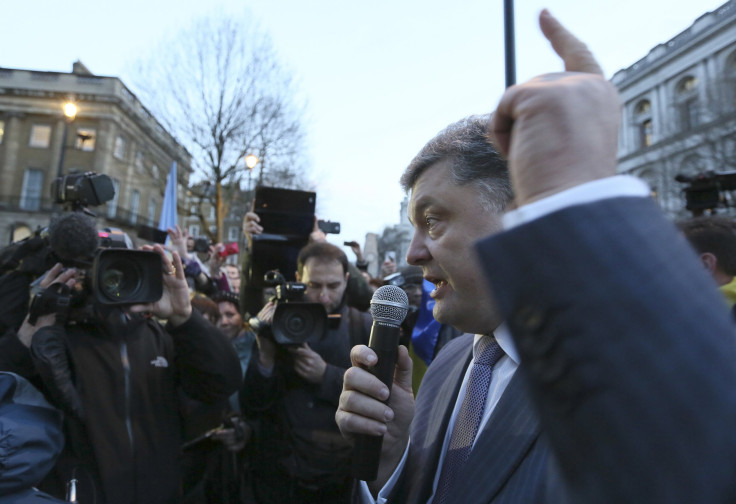Who is Petro Poroshenko? The Current Front-Runner For The Ukrainian Presidency And 'Chocolate King'

Just before the Sunday deadline for running in Ukraine's presidential election, popular political leader and boxer Vitaly Klitschko announced he is not running and instead will support Petro Poroshenko.
Poroshenko is a popular politician and businessman known as the “Chocolate King” because he amassed wealth as the head of the Roshen chocolate business. He studied economics and is known as a savvy businessman who took advantage of the industrial vacuum following the collapse of the Soviet Union.
Poroshenko bought a television station and heavy industry assets with his millions and has been an influential voice in Ukrainian affairs since the mid-1990s. He’s worth $1.3 billion, according to Forbes, and is the seventh richest person in Ukraine.
Poroshenko has been active in Ukrainian politics since the late 1990s, when he won a seat in the Verkhovna Rada, the national parliament. He’s served short terms as a head of three different Ukrainian ministries.
He commands 25 percent of the vote, according to recent opinion polls. Klitschko had the support of 9 percent of votors and former Prime Minister Yulia Tymoshenko (and Poroshenko’s only viable rival) holds 8 percent.
The Ukrainian presidential elections will take place on May 25. The president of Ukraine is directly elected by popular vote and has a five-year term. He or she cannot serve more than two consecutive terms. The president appoints the prime minister and is commander-and-chief of the military.
The president and prime minister largely split power in Ukraine. The latter is the head of the government and responsible for implementing the laws passed by the president, Cabinet of Ministers and Verkhovna Rada.
Poroshenko was a vocal critic of ousted President Viktor Yanukovych and sided with the opposition Euromaidan camp when protests broke out late last year. He was also a supporter of the pro-democratic Orange Revolution in the mid-2000s.
Klitschko gave his support to Poroshenko since “the only chance of winning is to nominate one candidate from the democratic forces.”
If he were to win, Poroshenko will likely focus on bringing Western investment to Ukraine. He has done business with both Europe and Russia, but his relationship with Ukraine’s neighbor to the east soured when Russia banned his chocolate in a bizarre labeling issue last July. The ban is believed to be politically motivated. Russia has since closed one of his factories worth $200 million over another arbitrary issue.
Poroshenko said in late January that the opposition was “ready to take responsibility for the whole situation in the country,” and it appears he actually be the one to personally take on that responsibility. But it won’t be an easy two months for Poroshenko. Despite serving prison time for corruption, Tymoshenko is expected to campaign aggressively and she still has supporters across the country, perhaps enough to upset Poroshenko in May.
Meanwhile Saturday, Russian Foreign Minister Sergei Lavrov reinforced a message from President Vladimir Putin that Russia would settle - at least for now - for control over Crimea despite massing thousands of troops near Ukraine's eastern border, Reuters reported.
"We have absolutely no intention of - or interest in - crossing Ukraine's borders," Lavrov said, speaking on Russian television. He is to meet again with U.S. Secretary of State John Kerry in Paris on Sunday.
Also Saturday, meeting in their historic capital of Bakhchisaray, the assembly representing the 300,000-strong Crimean Tatars, an indigenous Muslim minority, voted in favor of seeking "ethnic and territorial autonomy" in Crimea. They make up less than 15 percent of Crimea's population of 2 million and have been overwhelmingly opposed to Russia's annexation of the territory. The call for autonomy may signal a resigned acceptance of the Russian takeover.
© Copyright IBTimes 2024. All rights reserved.












